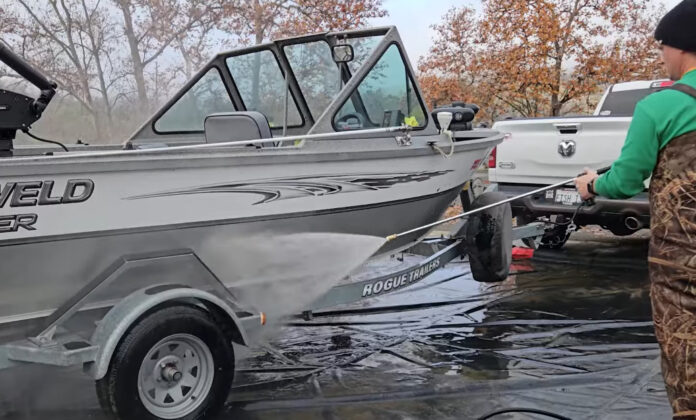Northern California lakes currently open with boat inspections required.
By Dave Hurley
WON Staff Writer
ANGELS CAMP – During their December 11/12 meeting, the California Fish and Game Commission took emergency action to list the invasive golden mussel as a restricted species, eliminating live importation, transportation. and possession. Jay Rowan, Chief of the California Department of Fish and Wildlife’s Fisheries Branch, responded to the action, stating, “Golden mussels are a bigger threat to California waters than quagga and zebra mussels because they can thrive in a wider range of water quality conditions. Putting golden mussels on the restricted species list is an important first step toward containment and prevention of spread of this non-native species.” According to the Commission’s press release, the emergency listing will reduce the potential for people to introduce the bivalves to other waters of the state. The species poses an immediate threat to the ecological health of the Delta and all waters of the state, water conveyance systems, infrastructure and water quality. The Commission’s action makes it illegal to be in possession or transport golden mussels in California.
At the present time, the following northern California waters remain open with boat inspections required: Shasta, Whiskeytown, Trinity, Oroville, Bullard’s Bar, Collins, Clear Lake, Folsom, Natoma, Hogan, Modesto Reservoir, Woodward, Tulloch, Amador, Don Pedro, McClure, McSwain, California Delta, The list is subject to change.
Berryessa is quarantined for 30 days or a decontamination with a green tag.
New Melones is quarantined for 30 days with red tag with decontamination station to be opened soon.
Camanche is closed indefinitely/ Pardee is closed until mid-February.
San Antonio and Nacimiento have special regulations regarding bands will no longer be accepted between lakes.
The Department of Boating and Waterways defines Clean, Drain, and Dry as follows:
- Inspect all watercraft and equipment.
- Clean any visible mud, plants, fish or animals from watercraft and equipment.
- Drain all water, including from lower outboard unit, ballast, live-well, buckets, and anything else that contains water.
- Collect any bilge water that contains petroleum products, while draining water from vessel. If absorbents were used and the bilge water contains petroleum products, the absorbents should be disposed of at a county household hazardous waste collection facility.
- Dry everything for at least five days or with a towel before reuse.
- Dispose of debris and unwanted bait, worms, and fish parts in the trash.
Denise Loo of Alan Fong Outdoors provided a video on You Tube demonstrating the decontamination process at Lake Berryessa: https://www.youtube.com/watch?v=umaOYCQJLBA.
The restrictions are a developing story, and many lake operators are in the process of obtaining decontamination units and revising regulations for launching.



